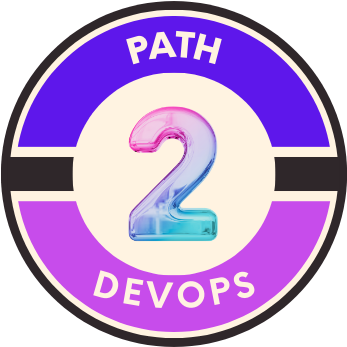Why Bash Shell Scripting is Required in DevOps Role
As technology continues to advance rapidly, the demand for streamlined and efficient software development and operations has become more critical than ever. DevOps, a software development approach that emphasizes collaboration between development and IT operations teams, has emerged as a popular solution to achieve this goal. In the DevOps realm, Bash shell scripting plays a pivotal role in enabling automation, task management, and integration within the DevOps workflow.
Automating DevOps Workflows with Bash
One of the primary reasons why Bash shell scripting is indispensable in a DevOps role is its capability to automate various tasks. Automation is at the heart of DevOps, as it significantly reduces manual intervention, minimizes human errors, and improves overall efficiency. Bash scripts allow DevOps engineers to automate repetitive tasks, ranging from simple file operations to complex deployment processes.
Bash scripting enables seamless task orchestration, allowing engineers to execute multiple actions and tools in a specific sequence. This becomes immensely valuable when managing infrastructure as code using tools like Terraform or configuration management tools like Ansible. DevOps engineers can create Bash scripts to provision and configure infrastructure effortlessly.
Bash for CI/CD Pipelines
Continuous Integration (CI) and Continuous Deployment (CD) are integral practices in the DevOps world. CI/CD pipelines ensure that code changes are frequently and automatically tested, integrated, and deployed to production. Bash scripts can trigger these pipelines, run tests, build Docker images, and deploy applications, ensuring a smooth flow from development to production environments.
Monitoring and Troubleshooting with Bash
In a dynamic DevOps environment, continuous monitoring and log analysis are vital to ensure system stability and performance. Bash scripts can be utilized to collect and analyze data, parse logs, and extract valuable insights from various sources. These scripts help DevOps engineers identify issues, troubleshoot problems efficiently, and maintain system health.
Customization and Flexibility with Bash
Bash scripting empowers DevOps professionals to create customized solutions tailored to the specific needs of their projects. Whether it’s a small utility to simplify a task or a comprehensive automation script, Bash provides the flexibility to address unique challenges effectively. Additionally, Bash scripts can be easily shared and adapted among team members, promoting collaboration and knowledge-sharing.
Collaborating with Bash Scripts
Collaboration is a cornerstone of DevOps, and Bash scripts play a significant role in fostering teamwork. DevOps engineers can share Bash scripts, making it easier for team members to collaborate, improve, and reuse code. This collaboration boosts productivity and accelerates project delivery.
Bash Integration with the Command Line
Bash seamlessly integrates with the Linux command line, providing DevOps engineers access to a wide array of command-line utilities, tools, and text-processing capabilities. This integration enhances the efficiency of executing commands and simplifies complex tasks.
Burstiness and Perplexity in Bash Scripting
Bash scripting offers a high level of burstiness and perplexity, which are crucial for tackling intricate DevOps challenges. Burstiness refers to the ability to handle spikes in workload efficiently, while perplexity relates to handling complex and varied tasks without losing specificity or context. With Bash, DevOps engineers can respond dynamically to ever-changing requirements.
Engaging Content in Bash Scripting
Bash scripts can be written in a conversational style, using personal pronouns, rhetorical questions, and analogies to engage the reader. A conversational tone enhances readability and encourages the audience to connect with the content.
Conclusion
In conclusion, Bash shell scripting is a fundamental tool for DevOps engineers. Its automation capabilities, task orchestration, and integration with various tools make it indispensable in the DevOps workflow. Bash scripting allows engineers to build customized solutions, collaborate efficiently, and handle complex challenges effectively. By utilizing Bash in DevOps, organizations can enhance their software development and operations, ensuring a smoother, faster, and more reliable process.
FAQs
Q1. Can Bash scripts be used in a Windows environment for DevOps tasks? A1. While Bash is native to Unix-like operating systems, it can also be used on Windows through the Windows Subsystem for Linux (WSL) or other compatible environments.
Q2. Are there any security concerns when using Bash scripts in DevOps? A2. Like any scripting language, security best practices should be followed when writing Bash scripts to avoid vulnerabilities or exploits.
Q3. Can Bash be used alongside other scripting languages in DevOps? A3. Absolutely! DevOps often involves a mix of scripting languages, and Bash can work seamlessly alongside Python, PowerShell, or other languages.
Q4. How can I learn Bash scripting for DevOps purposes? A4. Numerous online tutorials, documentation, and books are available to learn Bash scripting. Practice and hands-on experience are essential for mastering it.
Q5. Can Bash scripts interact with cloud services and APIs? A5. Yes, Bash scripts can interact with various cloud service providers’ APIs, allowing you to automate cloud-related tasks in your DevOps workflows.
